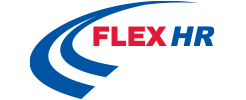Top 10 HR Trends in 2023
We asked those at Flex HR which top HR trends they think we’ll see in 2023, and they had a lot to share about the ever-shifting workplace landscape. Take a look at the top 10 trends below.
1. Outsourcing HR Services
One main trend that is on the rise is for businesses to outsource HR. There are many reasons for this, including that it saves a company valuable time, resources, and money, and can ensure the company is in compliance with laws and regulations.
It can be helpful to have a fresh, outside perspective, especially from a company that focuses on excelling in human resources.
2. An Increase in Recruiting
As many workers have left the workplace or quit their jobs for more flexible opportunities with higher pay, many companies have lost a substantial number of workers.
This has also created a general labor shortage in certain industries such as durable goods manufacturing, wholesale trade, retail trade, education, and health services.
In the new year, these industries will need to work hard to recruit to make up for these shortages; however, companies will need to get creative with their recruiting tactics to attract qualified candidates.
3. Compensation Changes
Inflation has brought many economic challenges, especially for employers as they struggle to keep up. Employees need raises, but raising everyone’s salary at once will cause the business to suffer.
Businesses will need to create compensation plans in the new year which address inflation and economic challenges.
Another possible change to compensation will be whether businesses choose to pay employees more based on their performance. The 2022 Lattice survey found that “65% of employees ranked work performance as one of the most important factors they want to be tied into their compensation.” Many HR professionals are working with business leaders to create plans to do just that.
4. The Need to Navigate Legal Complexities
As more states set up laws to override FLSA, to be exempt from pay thresholds, and add paid sick leave or disability pay requirements, businesses will need to plan financially to comply.
These new laws will pose unique challenges for multi-state employers, as they may need separate pay plans and structures in every state! This is yet another reason organizations are outsourcing to HR firms like Flex HR that understand these complex law changes.
5. Combating the Great Resignation (Still!)
In an effort to retain employees and battle the continuing trend of resignation, HR departments and firms will need to focus on meeting the new expectations and needs of employees.
The pandemic brought the need for workplace flexibility to the forefront, and it has stayed there as organizations learn to manage and maintain a remote or hybrid workforce. Many employees transitioned to a completely different lifestyle working remotely and now resist the call from organizations to return to work.
The 2022 Lattice Report predicts that it won’t just be the great resignation affecting turnover. This next year, “limited resources and an uncertain economic outlook” will no doubt cause employees to question whether they can continue their job.
Recruiting is expensive, so it’s in the best interest of organizations to listen to HR leaders who advise that they take measures to focus on meeting the needs of their current employees.
Jim Cichanski, Founder & CHRO of Flex HR predicts that the rate of resignation “should slow down, but current and potential employees are all about “me.“ Companies are making a lot of changes in benefits and finding alternative approaches to flexible work schedules.”
6. Using Automated Systems
These past years, we’ve seen more HR departments move toward “embracing automation to work smarter, not harder” shares Deirdré Huff, Sr. HR Manager of Operations at Flex HR.
Automation can be used for planning, regulating company compliance, hiring, to make requests, and to manage performance. As it saves time and can help streamline business practices, we anticipate it will continue to be used in these areas and more.
7. Pay Transparency
Many new laws require employers to disclose salary information in their job postings, or sharing how much employees make. Part of the movement toward this is to increase equity and decrease the chance of pay discrimination.
Of course, it is up to each company how transparent they will be with their employees, but the movement has already begun to gain traction.
8 . Revamping Training
As work is still hybrid, or fully remote at some workplaces, this continues to force organizations and HR firms to ask how to train employees without simply resorting to videos or video chats.
There is still a need to revamp the training process to meet the needs of different employees, and having a successful training program is more important than ever if businesses want to retain their employees.
9. DE&I Initiatives
Diversity, Equity and Inclusion (DEI) is still top of the list in Human Resources. Companies still struggle to create appropriate policies to prevent and address discrimination and harassment. More than that, the focus is still on how to create an environment of inclusion to foster well-being of all employees.
This will take the form of training programs and written policies, as well as be incorporated into company practices.
10. Accessibility
In the same spirit as DE&I initiatives, HR departments and organizations are encouraging companies to include plans that make work and resources more accessible to all.
Though the Americans with Disabilities Act (ADA) was passed in 1990 to discourage discriminatory hiring and business practices toward those with disabilities, there are still hurdles to climb in this area.
Companies need to create plans to include everyone and make sure they have the same opportunities, which means accommodating those with disabilities.
What should HR professionals prioritize to meet changing demands?
At Flex HR, we have to adapt to the changing workplace continuously. In the new year, we recommend you embrace the new workplace trends by prioritizing people over policies and be prepared to continue to tweak and change your policies (though you’ll have to create them first!).
Engage and Retain Employees
With the number of people leaving their jobs or the workplace in favor of a more accommodating lifestyle or higher-paying job, your first priority should be to keep your current employees.
Phil Davis, Senior Vice President at Flex HR, advises that one way to do this is by paying them a fair wage, “+/- 10% of the prevailing wage market. Being above market is your best defense against turnover due to wages.”
Other important factors that prevent turnover are creating a positive workplace environment and having competent, caring supervisors.
Jim Cichanski advises that HR departments focus on “providing resources and interventions for the mental, physical and financial needs of their employees while maintaining a safe and healthy work environment.” He says the best way to retain them is “by listening to their needs, creating a culture of company trust, and responding appropriately to requests and concerns.”
According to the 2023 Lattice Report, the big things that leaders have identified to make employees stay, aside from fair wages, include company leadership transparency and providing more feedback and more structured career paths.
Know and Adapt to the Changing Laws
Throughout this next year, organizations will need to work hard to keep on top of the new laws and regulations.
In terms of navigating the new laws in some states, Phil Davis recommends that you “engage a reputable and competent outside source to help maneuver the changing legal landscape.”
Similarly, Deirdré Huff, Sr. HR Manager of Operations at Flex HR emphasized the importance of “maintaining legal compliance as laws continue to change.”
Many changes are coming, so let us help you prepare! Consider consulting Flex HR to help with your human resources needs in the new year.
Contact us now to discuss your HR needs.



